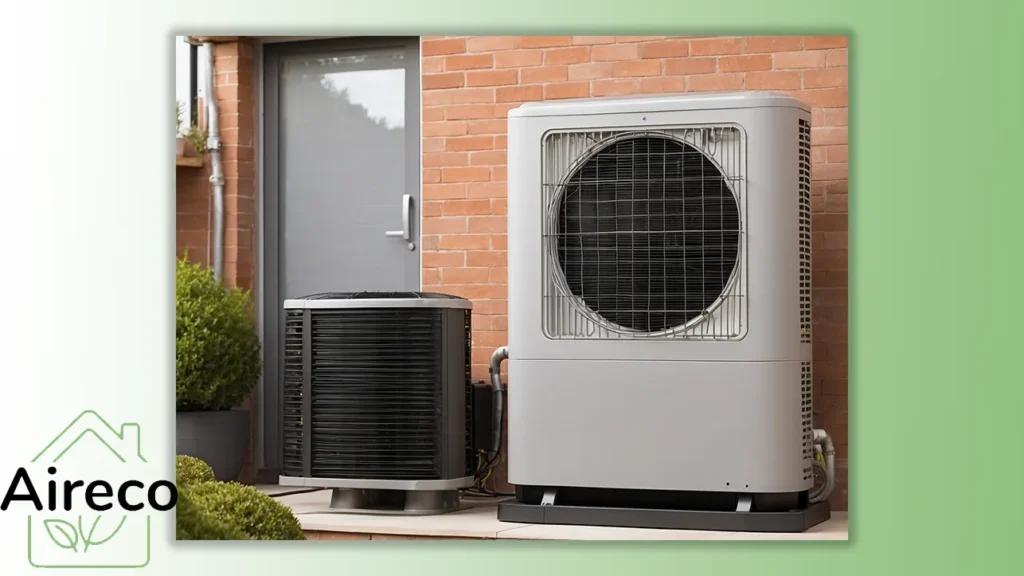
Heat pumps are a crucial part of the heating systems in many Canadian homes. These devices, which can both heat and cool a home, are an efficient and environmentally friendly alternative to traditional heating systems. In a country like Canada, where winters can be harsh and long, having an effective and efficient heating system is of utmost importance.
Understanding Heat Pumps
A heat pump is a device that transfers heat energy from a source of heat to a destination called a “heat sink.” Heat pumps move thermal energy in the opposite direction of spontaneous heat transfer, by absorbing heat from a cold space and releasing it to a warmer one. This is achieved through a cycle of evaporation and condensation, powered by a compressor.
There are several types of heat pumps, but the most common are air-source heat pumps, ground-source (or geothermal) heat pumps, and water-source heat pumps. Each type works slightly differently, but all operate on the same basic principle of heat transfer.
The Need for Heat Pumps in Canada
Canada’s climate conditions make it a prime location for the use of heat pumps. The country’s long, cold winters require homes to have efficient heating systems. Heat pumps can provide this efficiency, as they are capable of heating a home even in very cold conditions.
The importance of efficient heating systems in Canada cannot be overstated. Not only do they provide comfort during the cold winter months, but they also help to reduce energy consumption and lower greenhouse gas emissions. This is particularly important in a country like Canada, which is committed to reducing its carbon footprint.
The Efficiency of Heat Pumps
Heat pumps are highly energy efficient. They work by transferring heat, rather than generating it, which makes them more efficient than traditional heating systems. In fact, a heat pump can provide up to three times more heat energy than the electrical energy it consumes.
Compared to other heating systems, such as gas or electric furnaces, heat pumps are a more environmentally friendly option. They produce less carbon emissions and can be powered by renewable energy sources. This makes them a key player in efforts to reduce carbon footprints and combat climate change.
The Cost of Heat Pumps
The initial installation cost of a heat pump can be higher than that of a traditional heating system. However, the long-term savings that can be achieved through reduced energy bills often offset this initial investment.
Maintenance costs for heat pumps are typically lower than for other heating systems. This is because heat pumps have fewer mechanical components and do not require fuel to operate, which can reduce the risk of breakdowns and the need for repairs.

Government Incentives for Heat Pumps in Canada
The Canadian government offers several incentives for the installation of heat pumps. These include federal incentives, such as the Canada Greener Homes Grant, which provides homeowners with up to $7100 in grants for energy-efficient renovations, including the installation of heat pumps.
In addition to federal incentives, many provinces also offer their own incentives for heat pump installation. These can include rebates, low-interest loans, and tax credits, making the installation of a heat pump an even more attractive option for homeowners.
Case Studies of Heat Pump Usage in Canada
There are many success stories of heat pump installations in Canada. For example, a family in Nova Scotia reported a 50% reduction in their energy bills after installing a heat pump. However, there can also be challenges, such as the need for a backup heating system in extremely cold conditions.
The Future of Heat Pumps in Canada
Technological advancements in heat pump systems are expected to increase their efficiency and reliability even further. This, combined with the growing awareness of the need for energy-efficient and environmentally friendly heating options, suggests a bright future for the heat pump market in Canada.
Conclusion
In conclusion, heat pumps offer a number of benefits for Canadian homeowners, including high energy efficiency, lower carbon emissions, and potential cost savings. While there are challenges to consider, such as the initial installation cost and the need for a backup heating system in extreme cold, the benefits often outweigh these drawbacks. With the support of government incentives and the potential for future technological advancements, it seems clear that heat pumps are a worthy investment for Canadians.
FAQ
What is a heat pump?
A heat pump is a device that transfers heat energy from a source of heat to a destination called a “heat sink.”
How does a heat pump work?
A heat pump works by transferring heat, rather than generating it. This is achieved through a cycle of evaporation and condensation, powered by a compressor.
Why are heat pumps important in Canada?
Heat pumps are important in Canada because they provide an efficient and environmentally friendly way to heat homes during the country’s long, cold winters.
How efficient are heat pumps?
Heat pumps are highly efficient, providing up to three times more heat energy than the electrical energy they consume.
What are the costs associated with heat pumps?
The initial installation cost of a heat pump can be higher than that of a traditional heating system, but this is often offset by reduced energy bills. Maintenance costs for heat pumps are typically lower than for other heating systems.
What government incentives are available for heat pump installation in Canada?
The Canadian government offers several incentives for the installation of heat pumps, including the Canada Greener Homes Grant. Many provinces also offer their own incentives, such as rebates, low-interest loans, and tax credits.
What is the future of heat pumps in Canada?
The future of heat pumps in Canada looks bright, with technological advancements expected to increase their efficiency and reliability. The growing awareness of the need for energy-efficient and environmentally friendly heating options also suggests a growing market for heat pumps.
